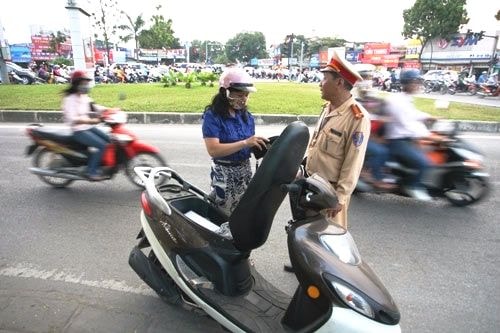Regulations on fines for driving vehicles without owner's name: Not practical?
(Baonghean) - From January 1, 2017, according to Article 30 of Decree 46, traffic police will fine individuals from 100,000 to 200,000 VND, and organizations from 200,000 to 400,000 VND who are owners of motorbikes, scooters and similar vehicles that do not complete the registration procedure (transfer the vehicle owner's name in the Vehicle Registration Certificate to their own name). This also applies to "given, gifted, allocated, transferred, inherited assets".
Usually, when it is an official regulation of the State, it must and should be followed. In reality, there are many things that the public initially reacts to, but gradually when it is done and becomes routine, it is seen that there are many benefits, such as wearing helmets (here we are not talking about the policy of punishing people who use poor quality helmets).
But there is an opinion that: Motorbikes are now an important means of transportation for many rural families in particular, they also use them to transport goods to the market, transport agricultural products from the fields to home and from home to the place of consumption. To have a motorbike, they have to work hard, even borrow...
 |
| The penalty for not transferring ownership of motorbikes has been postponed to 2017. (Illustration photo) |
A motorbike purchased must be registered under the name of the head of the household, it cannot be registered under the name of multiple family members. If starting from January 1, 2017, the traffic police will fine those who ride motorbikes without their ownership, many families will face many difficulties.
Not to mention the case of relatives or brothers who live far away coming back to their hometown and want to visit someone in the village or commune and borrow their relatives' cars... When the police check the driver, to prove that it is a personal car in the family, for example, it is also time-consuming...
Therefore, when issuing a new regulation, it is necessary to carefully consult public opinion and be highly practical so that the regulation can soon prove its suitability and effectiveness.
Phung Van

.png)
.png)




.jpg)
